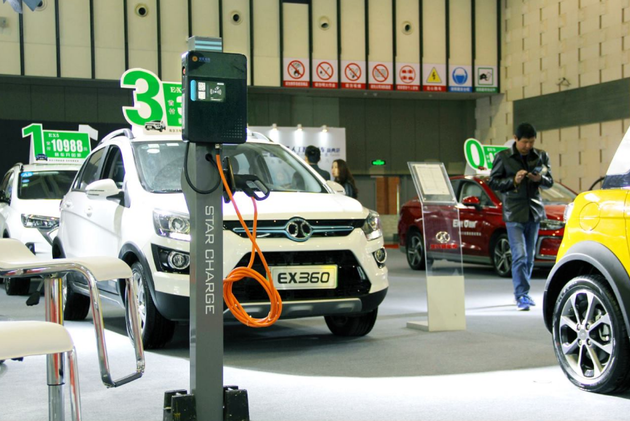
Photo/VCG
Apr. 24 (NBD) –China's new energy vehicle (NEV) industry hailed the much anticipated subsidy extension after the COVID-19 outbreak more than halved sales in the first quarter this year.
On Thursday, multiple ministries and the state planner announced the decision to keep subsidizing NEVs till the end of 2022. Previously NEV subsidies were set to be completely cancelled by the end of this year.
The speed of subsidy cut will also be slowed. Specifically, subsidies will be reduced by 10 percent, 20 percent, and 30 percent from the previous year for 2020, 2021, and 2022, respectively.
NEV-related stocks, including electric vehicle battery makers CATL (300750.SH) and BYD (002594.SZ), and lithium supplier Ganfeng Lithium (002460.SZ; 01772.HK), closed higher Friday against a weak market.
China's NEV sector has seen a 56.4 percent decline in sales and a 60.2 percent decline in production year-over-year in Q1 due to the COVID-19 epidemic, according to the Ministry of Industry and Information Technology.
The subsidy extension gives the industry a strong boost, and, according to Li Jinyong, director of the China Auto Dealers Chamber of Commerce, the three-year scheme brings policy stability which is even better news than the subsidy per se.
Previously the subsidy policies were renewed every year, leaving NEV makers limited time to adjust their products to meet standards, Li said to National Business Daily.
One key change in the new policy stirred up discussions - new energy passenger cars priced higher than 300,000 yuan (42,371 U.S. dollars) will not be eligible for subsidies. Authorities said the price limit was set to avoid subsidies going to luxury cars.
The change means that Tesla's Model 3, both the standard range and the long range versions, will be disqualified for subsidies since their pre-subsidy prices are higher than the limit.
It's noticed that Tesla on Friday raised the prices of China-made Model 3 by 4,500 yuan and 5,000 yuan for the two versions. However, Tesla's Chinese competitors, Li Xiang and He Xiaopeng who both founded their namesake EV brands, expected that prices of China-made Model 3 will eventually go down to meet the requirement.
The two admitted that the likely price cut would mount significant pressure to domestic EV makers.
Chinese EV marque NIO is exempted from the price limit since it supports swappable batteries, which is encouraged by the new policy, though its premium SUVs are much more expensive than 300,000 yuan.
On Thursday (U.S. Time), stocks of Tesla (NASDAQ: TSLA) dipped by 3.62 percent while the shares prices of NIO (NYSE: NIO) dropped slightly by 0.97 percent.
Email: gaohan@nbd.com.cn


 川公网安备 51019002001991号
川公网安备 51019002001991号





